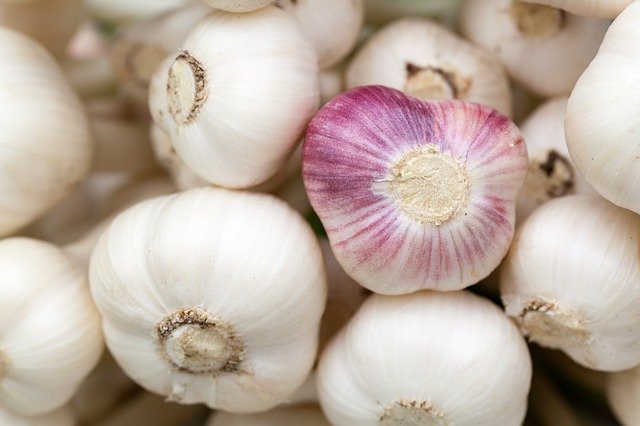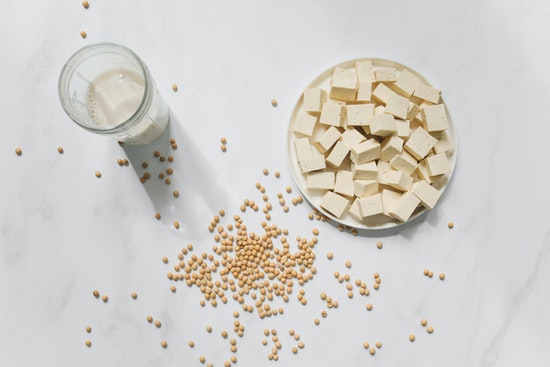Soy sauce is a liquid condiment made from fermented soybeans, roasted wheat, brine, and Aspergillus molds fermented for between six months and a year. The delicacy is an integral part of traditional Chinese cuisine and has a particularly strong umami flavor.
When it comes to soy sauce, there are no grey areas – you can either love it or hate it. But what about dogs? Can dogs eat soy sauce? Or is soy sauce bad for dogs? Once again, there are no grey areas – soy sauce is bad for dogs. The extremely high salt content is one of the reasons soy sauce is bad for dogs.
However, just because soy sauce is bad for dogs, it does not mean that most dogs would not feast on it if given the opportunity; therefore, if you enjoyed Chinese takeout and have some soy sauce leftovers be mindful where you dispose of them. The last thing you need is your dog licking soy sauce.
WHAT IS SOY SAUCE MADE OF?
Soy sauce is traditionally prepared using four basic ingredients:
🐶Fermented soybeans
🐶Roasted grains
🐶Fermenting ingredients
🐶Salt.
Although not part of the original recipe, some manufacturers add garlic and onion to the soy sauce recipe.
WHY IS SOY SAUCE BAD FOR DOGS?

There are several different reasons why say sauce is a big no-go for dogs.
Particularly high salt content
Sodium or salt is one of the four basic soy sauce ingredients. To depict the situation more vividly, one tablespoon of soy sauce contains 1000 milligrams of salt. In different terms, this content equals to three quarters of teaspoon of salt.
Put it like that, three quarters of a teaspoon of salt might not look that much. For comparison, the amount of salt in one teaspoon of soy sauce equals the amount of salt in two large potato chips bags. For dogs, that is enough salt to cause salt poisoning.
In fact, a dog weighing around 30 pounds must not consume more than 100 milligrams of salt per day. Considering that one teaspoon contains 1000 milligrams it is safe to assume that one lick of soy sauce is enough to cause poisoning in a 30-pound dog.
The high salt content can have another consequence – kidney failure.
Garlic and onion
As mentioned these veggies are not a regular part of the soy sauce recipe. However, many manufacturers add either garlic or onion (sometimes both) to spice up the condiment.
Garlic and onion are extremely toxic to dogs. Depending on the ingested amount the consequences of garlic and onion poisoning can vary from transient digestive upset to death.
Soy allergies
Soy is a common allergen for dogs. Soy is frequently used as cheap filler in many commercially available dog food formulas. However, because of its widespread use and more often than not, GMO sourcing, soy is an increasingly common dog allergen.
Allergic reactions to soy sauce are not common but are definitely possible and therefore worth mentioning. The allergic reaction may manifest with digestive issues, skin problems or impaired breathing.
SOY SAUCE AND SALT POISONING IN DOGS

Salt poisoning is a potentially lethal condition whose clinical manifestation can be classified as gastrointestinal, neurological, or cardiovascular.
The hallmark signs of salt poisoning include increased thirst and increased urine production and urination frequency. The increased water intake is beneficial. In fact, a dog facing salt poisoning can escape death by drinking water. This is because the water will dilute the blood’s salt levels and promote salt elimination via the urine.
Common signs indicating salt poisoning include:
🐶Vomiting
🐶Diarrhea
🐶Nausea
🐶Decreased appetite
🐶Increased thirst
🐶Increased urination
🐶Tremors, muscle spasms, convulsions, and seizures
🐶Extreme lethargy
🐶Difficulty breathing
🐶Disorientation
🐶Lack of coordination.
SOY SAUCE AND KIDNEY FAILURE IN DOGS
Dogs with chronic kidney issues must be fed low-sodium diets. This is because salt has a negative effect on the kidneys. Following that concept it can be extrapolated that too much salt can cause kidney damage or in more severe cases, even kidney failure.
A dog with salt-induced kidney failure will show the following signs and symptoms:
🐶Decreased appetite
🐶Mouth ulcers
🐶Blood tainted urine
🐶Listlessness
🐶Stumbling.
SOY SAUCE AND ONION/GARLIC POISONING IN DOGS

Onion and garlic trigger toxic effects in similar manner. Mainly, first they cause gastrointestinal upsets and then target the red blood cells. Both garlic and onion cause significant red blood cells damage. Because of the damage, the red blood cells rupture and are removed form circulation. When enough red blood cells are removed from circulation, the dog develops anemia.
Generally speaking, these are the signs associated with onion and garlic poisoning:
🐶Excessive drooling
🐶Vomiting
🐶Diarrhea
🐶Abdominal pain
🐶Difficulty breathing
🐶Increased respiratory rate
🐶Increased heart rate
🐶Pale to bluish gums.
DO DOGS LIKE SOY SAUCE?
There is no right or wrong answer. Dogs with voracious appetites will have no problem feasting on this Chinese delicacy. On the other hand, dogs with more delicate palates can be repelled by the soy sauce’s distinctive smell.
WHAT IF MY DOG EATS SOY SAUCE?
There are two possible scenarios in which a dog can eat soy sauce:
🐶Dog parents feed it unaware of its consequences
🐶Dogs getting hold of it.
Regardless of how your dog ate the soy sauce, once you find out you need to seek immediate veterinary attention. It is not advisable to wait and see how the situation will develop.
The vet will perform a thorough physical examination and probably a blood analysis to assess the overall situation. Based on the findings the vet will initiate adequate treatment.
WHAT ABOUT OTHER SOY PRODUCTS FOR DOGS?

The soy part of the soy sauce is not toxic or even dangerous to dogs. Therefore, it is safe to assume that soy products are generally safe for dogs.
Soybeans
Unless allergic, dogs can safely eat soybeans. As a legume, soybeans are packed with proteins, healthy fiber and an array of vitamins and minerals – all nutrients dogs can benefit from.
Soybeans are a frequent ingredient in homemade diets for dogs, especially for dogs allergic to traditional protein sources.
Tofu
Derived from soybeans, tofu is a delicacy and a vital part of vegan menus. As an alternative protein source, tofu is often used for dogs allergic or intolerant to traditional proteins.
Soy milk
Dogs genuinely like milk. However, as dogs grow they usually become lactose intolerant, and drinking milk will result in digestive upsets manifested with bouts of profuse diarrhea, vomiting, abdominal pain, lethargy, and decreased or absent appetite. Therefore, soy milk as a lactose-free milk option is safe for dogs.
WHAT SAUCE IS SAFE?
Just because you cannot share your love of soy sauce with your dog it does not mean you cannot enrich its menu by adding some dog-friendly sauce every now and then.
If looking into dog-friendly sauces jut visit your local pet store and buy some high-quality topper formulated for dogs. Alternatively, you can put the apron on and start cooking sauces for your dog.
Here are four easy to make sauce options for dogs:
🐶Broth – just add beef or chicken broth to the kibble and let the mixture stay before serving it. The kibble will moisten and soften and the broth will make the overall mixture more enticing.
🐶Wet food gravy – it is always useful to have a can or two of wet food. Before serving your dog its kibble put the wet food in the microwave and pour it over the kibble.
🐶Pantry staples – common ingredients from your refrigerator or pan can make excellent dog-friendly sauces. Popular examples include applesauce, cooked eggs, dog-friendly baby foods, plain yogurt (unsweetened, low-fat), and low-fat cottage cheese.
🐶Purees – all dog-friendly foods can be mixed with water or broth and then pureed into a food processor. Popular puree basics include debones meats, cooked rice, potatoes, green beans, peas, broccoli, and carrots.
CONCLUSION
When it comes to food begging, dogs are skilled manipulators. Just one sad doggy look and they can guilt us into sharing over dinner with them. However, when our dinner is Chinese takeout food spiced with soy sauce, sharing does not mean caring.
In fact, sharing your soy sauce with your dog can have serious consequences for your dog. Depending on its size and overall health, even one lick can warrant an immediate trip to the vet’s office.
To prevent accidents keep your soy sauce out of your dog’s reach. In case of leftover soy sauce dispose it in a safe manner, so dogs cannot access it.
FAQs
1. Can soy sauce kill a dog?
Yes, because of its high sodium/salt content, soy sauce can kill a dog. In fact, in terms of salt poisoning, soy sauce is just as dangerous as pure salt and ocean water.
2. Is soy toxic to dogs?
Soy is not toxic to dogs per se. the reason soy sauce is toxic is because of the added salt and onions or garlic. The soy component is not toxic. However, it is worth mentioning that some dogs can be allergic to soy.
3. What if my dog eats soy sauce?
The potential scenarios following your dog’s soy sauce indiscretions depend on two main factors – your dog’s weight and the amount of soy sauce consumed. If your dog consumes soy sauce, consult a vet immediately.
4. What other human foods are dangerous to dogs? Popular human foods that are a no-go for dogs include avocados, grapes, raisins, tomatoes, chocolate, xylitol, dough, alcohol, coffee, tea, and certain types of nuts

